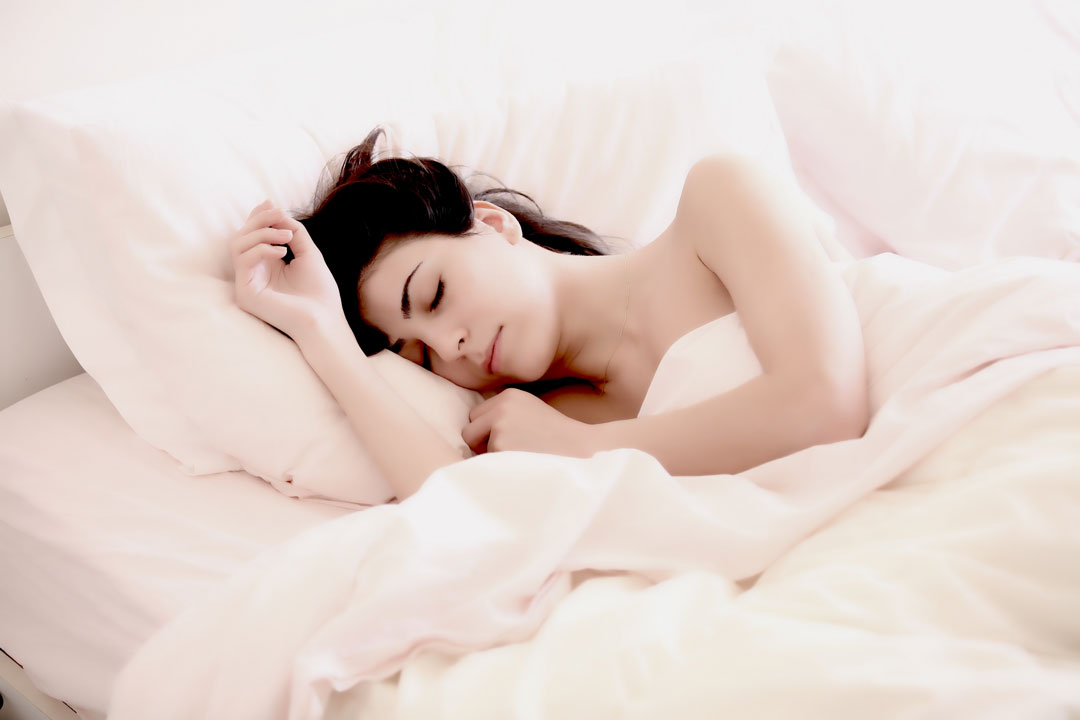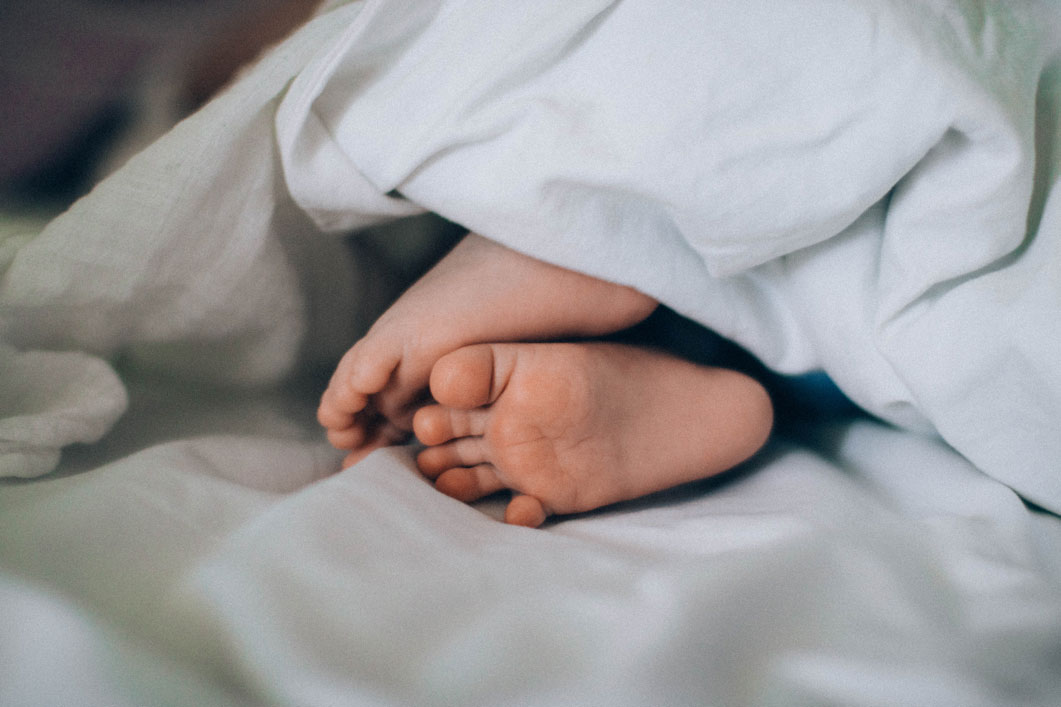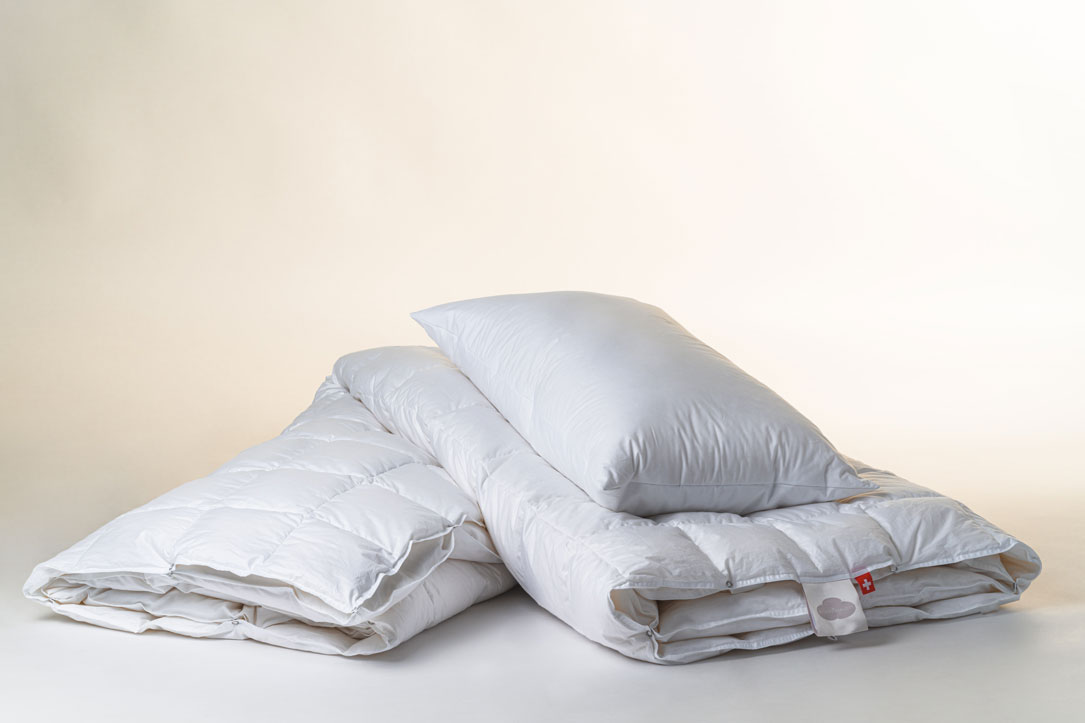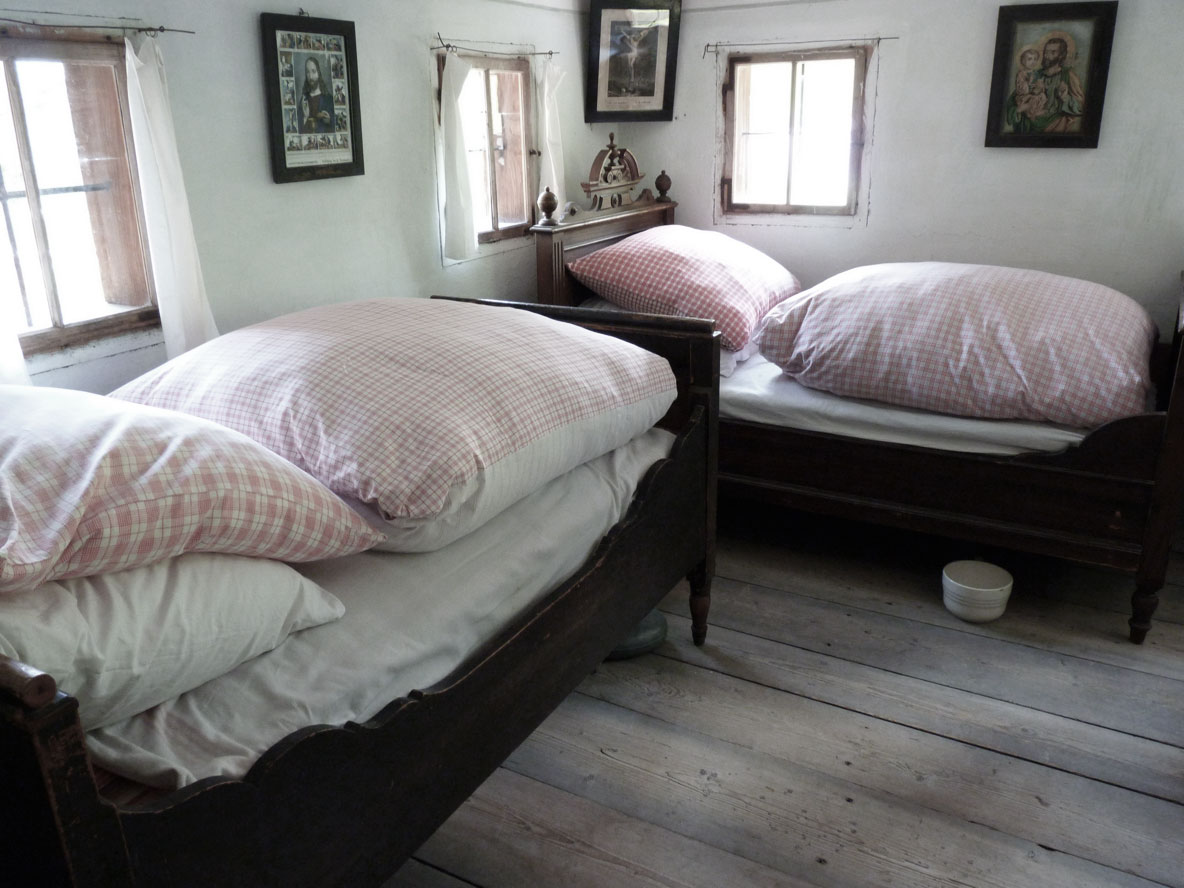EN
- DE
- FR
- IT

Sleeping is a basic need, like eating and drinking. Human beings cannot survive without sleep. But what exactly happens during our sleep is still not scientifically understood. However, one thing is certain: sleep has many functions and is indispensable for physical and mental health as well as for physical and intellectual performance. Body and mind recover during sleep. Sleep helps us learn, remember and be creative.
Sleep is important for the body and mind. There’s nothing better after a busy day than to slip under a cosy duvet, lay your head on a soft pillow, and drift comfortably into a deep slumber.

Sleep is not an optional luxury, but absolutely vital for optimal memory function and regeneration of the entire body.
During our sleep we recover. We all know this from our own experience: if you suffer from a chronic lack of sleep, you are of little use, but after a good night's sleep you are usually alert and strong again.
While we are in deep sleep, growth hormones are released, which are said not only to promote growth in childhood and youth, but also to perform various repairing and fortifying processes in the entire body.
So, if you sleep enough (and well), you are more balanced, capable, productive, able to learn, receptive and in a better mood.

Just like eating and drinking, sleeping is a basic need.
We may not be aware of this – because unlike eating and drinking, we are unconscious when we sleep – but the quality of our sleep can be massively influenced.
Your sleeping environment, the temperature of the room, whether it is quiet and dark enough, whether you have a mattress suited to your needs, a cosy duvet and the right pillow... All these factors are decisive for good quality sleep.
The quality of your sleep is worth taking care of because a good night's sleep improves your quality of life!

Sleep is used to restore and rejuvenate and thus has a great influence on our vitality, well-being and performance during the day.
We spend about one third of our lifetime sleeping. The quality of our sleep is highly dependent on the bedding, bed, temperature and humidity; in short, on our sleeping environment, between mattress and covers.
During sleep, we release a lot of moisture through our skin - up to half a litre of moisture per night. If this remains on the body, it causes a feeling of chill and discomfort.
A warm, dry environment is extremely important for good sleep.

Sleep is not a linear process. After falling asleep we doze first and can be woken up very easily. Only later do we fall into a deep sleep. Towards morning, our sleep becomes more superficial again, but we often have vivid dreams.
Sleep specialists distinguish four different phases:
REM is an acronym for "Rapid Eye Movement" During this sleep phase, the eyes move back and forth rapidly under the closed eyelids. During the other three sleep phases, the eyes rest or slowly oscillate back and forth. These phases are therefore also referred to as non-REM sleep.

There is an old saying, "You've made your bed, and now you must lie in it".
Figuratively speaking, this means that every action, every decision, every choice has consequences. A person’s circumstances are normally the result of his or her own actions.
We at duvetsuisse.com say, "Those who have better bedding sleep better"
This means that everybody can influence the quality of their sleep by choosing a good duvet and a suitable pillow.
Because if you sleep well, you feel strong and rested in the morning. When we are rested and refreshed, we are well equipped to face life in all its diversity in an alert and open-minded way.
…and whoever sleeps better, lives better.

Until the late 1960s, people everywhere in Europe slept under a woollen blanket covered with a top sheet and a bulging, heavy feather quilt.
In the 1970s, a new fashion spread to European bedrooms, starting in Scandinavian countries: "Nordic sleeping".
It quickly established itself as the standard: sleeping under an airy, light, large down duvet, without a sheet or scratchy woollen blanket.
This simple, practical way of making a bed with just one large duvet has been winning over large parts of Europe since the seventies - and the trend keeps on going!